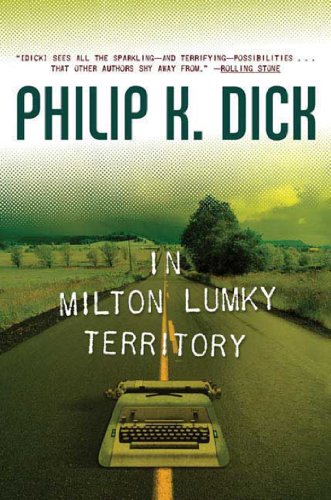What do you think?
Rate this book


222 pages, Kindle Edition
First published June 1, 1985
"You know, I have the feeling I know you. But I can't place you."My 35th PKD novel. I'll notch it to a 4.5, for being a nice surprise.
"... what about the parents? They terrorize teachers. They get them fired every day--one angry parent in the principal's office throws around more weight than all the teachers' unions in the world. ... They destroyed the school system with their witch hunts... they made teachers so timid it's no wonder nothing gets taught. A teacher who opened her mouth about sex education or birth control or atomic war got fired."The bulk of the story is wrapped up in the couple's attempt to go into business together; a venture that Phil delineates with impressive precision.